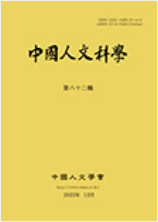This work is designed to make even a small contribution not merely to the opening of a new chapter in Hanja civilisation studies and the recognition and prospect of interdisciplinary platforms in Chinese humanities but to the breaking of boundaries between various levels and dimensions that could be obstacles to doing so. Therefore, as a cultural studies researcher who has been standing on the cross-disciplinary border for quite some time, I seek to explore the borders of language studies, cultural studies, and urban studies, traversing those of some Hanja using societies, and even those between the East and West. As a first step to this end, the next chapter is comprised of three steps: outlining the dictionary definitions of a pair of Sino-Korean words, ‘city (都市)’ and ‘culture (文化)’ in South Korean, Chinese, Japanese, Vietnamese and English; revealing the similarities and differences between the four preceding languages; and making the comparison between them and English. The work then explains the social-historical contexts of another pair of Sino-Korean phrases, ‘cultural city (文化都市)’ and ‘urban culture (都市文化)’ commonly used in contemporary South Korean society, analysing how much it has gone against the dictionary definitions seen in the previous chapter and, as a result, how destitute the language life of South Korean language public has been. In the last analysis, a tentative conclusion is drawn by urging that such an attempt as this be ultimately a call for the transition ‘from epistemological statics to ontological dynamics’.
Ⅰ. 들어가며: ‘플랫폼’과 ‘경계 허물기’
Ⅱ. 도시와 문화: 한․중․일․베․영어의 사전적 정의
Ⅲ. 도시와 문화, 문화도시와 도시문화
Ⅳ. 나가며: ‘인식론적 정학’에서 ‘존재론적 동학’으로
(0)
(0)
